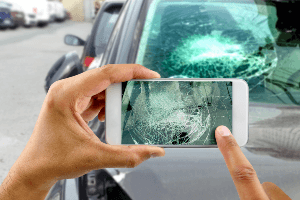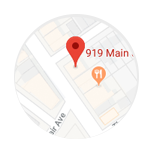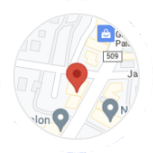BLOG
Steps to Take at an Car Accident Scene in NJ
 Car accident scenes can sometimes be chaotic, especially if there are more than two vehicles involved. It is easy to forget what you need to do to keep yourself safe and ensure you have enough evidence when you file a claim.
Car accident scenes can sometimes be chaotic, especially if there are more than two vehicles involved. It is easy to forget what you need to do to keep yourself safe and ensure you have enough evidence when you file a claim.
Below, our car crash lawyers in New Jersey discuss what steps you should take at the scene of an accident to protect the value of your claim.
If you were injured in an accident caused by another driver’s negligence, call us today. The consultation is free and there are no upfront fees.
Stop the Car
This first step is simple, but too many people fail to stop when an accident occurs. It is illegal to leave the scene of an accident, especially when there are injuries.
If the damage to your vehicle does not make it impossible to operate, you should probably pull the vehicle off the main road. Not only does this help increase traffic flow, but it also helps prevent an additional accident.
It is important to note that you should only move your vehicle from the roadway if it is safe to do so.
Check to See if Anyone is Injured
Anyone involved in the accident should check for injuries. This includes passengers and other drivers. Even if the accident did not result in extensive property damage, you should still check in with everyone to make sure there are no obvious injuries that require immediate medical assistance.
Keep in mind that there are hidden injuries that may not show symptoms right away. That is why it is still important to get a full medical evaluation at the scene of the accident.
Call Emergency Services
When you dial 9-1-1, you should specify that you are reporting an accident, so you will need police and emergency medical services. This helps ensure your accident is documented and that everyone involved in the crash gets evaluated medically.
A police officer will conduct a preliminary investigation of the crash to determine how the collision occurred and who may have been at fault. The details the officer notes should be included in the police/crash report so you can use that information to help build a strong case.
An Emergency Medical Technician (EMT) should be able to determine whether anyone involved in the collision requires further medical attention at the hospital.
Exchange Contact Information
If it is safe to do so, you should exchange contact information with the other driver involved in the collision. You can probably do this while you wait for the police and ambulance to arrive.
It is a good idea to exchange names, contact details and insurance information with all parties involved in the collision. This is going to be helpful when you file an insurance claim with your attorney. Having the other driver’s phone number is useful in case you misread or misheard the insurance policy number.
Talk to Potential Witnesses
Talking to potential eyewitnesses and getting their contact information is also vital at the scene of the crash. This is most likely the only time you will be able to do this because you may never see those people again.
It is important to note that you should not interview these people, as that is your attorney’s job. However, you do need to get the person’s name and contact information so you can hand that over to your attorney once you file a claim. Some eyewitnesses may not want to get involved, but it is best to talk to as many people at the scene as possible to have statements corroborating your side of the story.
Take Photos of the Damage
Although it is important to move your vehicle from the roadway after a collision, you should take photos of the vehicles as they lie if it is safe to do so. This is because there are some collisions where it may be more difficult to determine liability. For example, a merge lane accident.
Make sure to take photos of the damage to your vehicle from every angle possible as well. If you have visible injuries, get pictures of those too. If you can, get photos from inside your vehicle and the other driver’s vehicle.
The more photos you take of the scene, the more evidence you will have from the day to help you build a strong case.
Give a Statement to Police
Talk to the police officer at the scene of the crash. If you think the other driver was speeding or intoxicated, you should let law enforcement know. If he or she agrees with your assessment, the police officer might make the other driver take a sobriety test. The results of this will likely be included in the police report.
Call an Experienced Attorney
Accidents can be messy and chaotic. Do not let the process of pursuing compensation create chaos. If you take these important steps and get into contact with an attorney, your chances of recovering compensation may be better than going it alone.
Our experienced attorneys are prepared to help you navigate the legal process to help you recover maximum compensation.
Call 800-518-0508 today to learn more.










